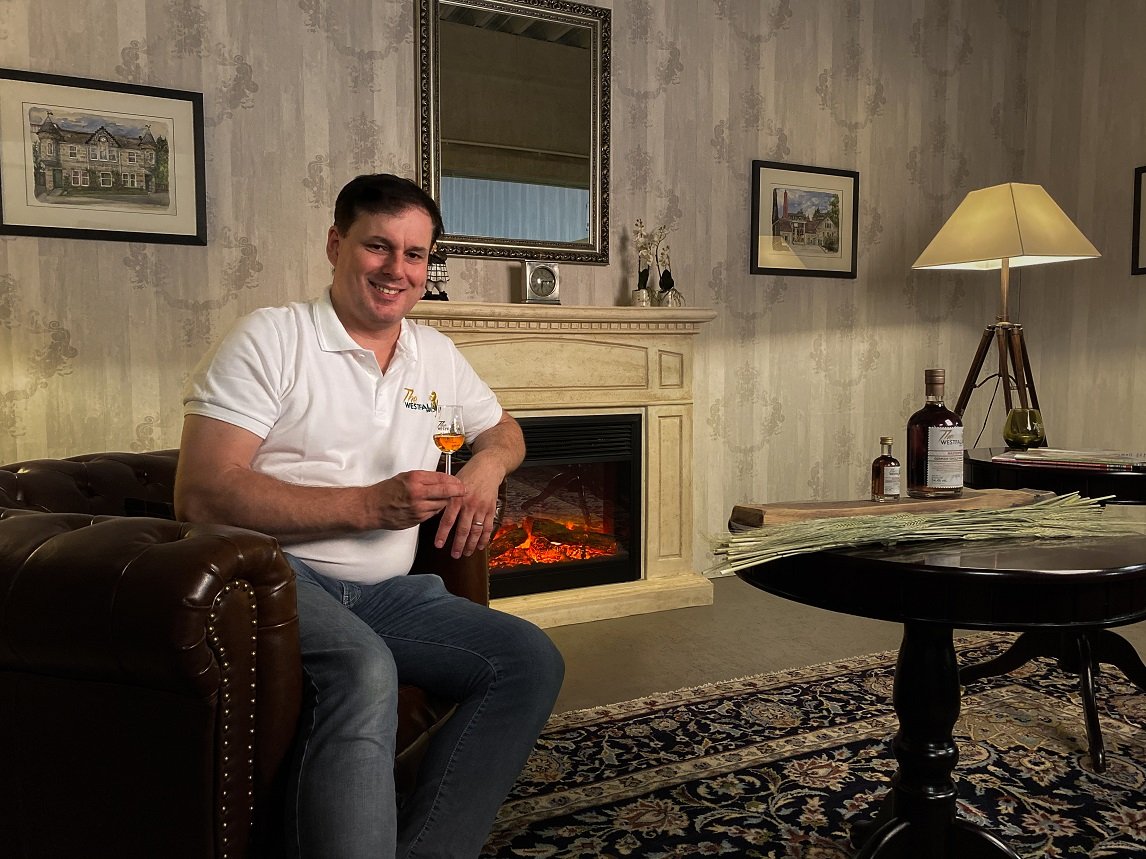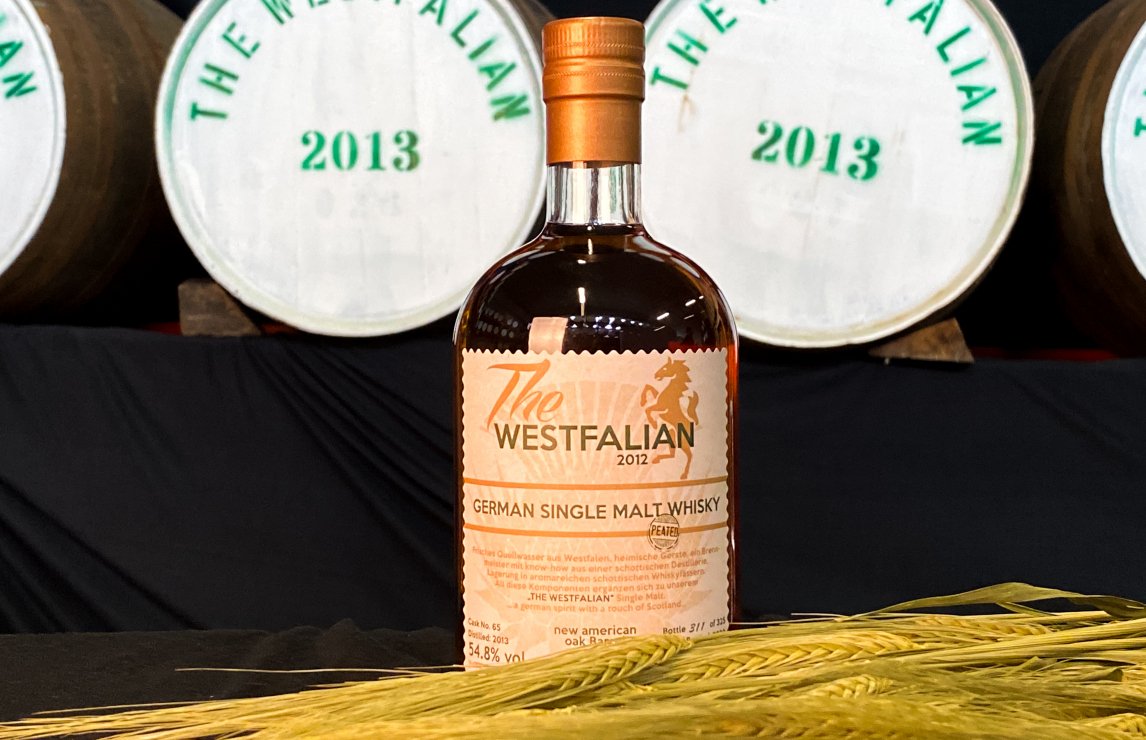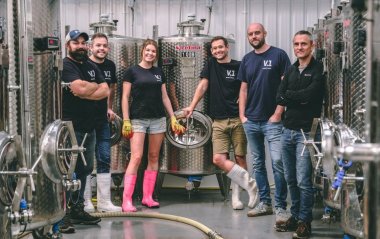Worldwide Whiskey Trophy 2020: The Westfalian Peated 6-Year-Old Single Malt
German whisky connoisseur Thomas Ewers founded Malts of Scotland as an independent bottling company in Paderborn, North Rhine-Westphalia, in 2005; in 2009 he opened the Malts of Scotland warehouse shop, through which he sells a wide variety of world whiskies as well as his own Westfalian label.
A Keeper of the Quaich, Ewers has several thousand casks, held at 80 distilleries and warehouses in Scotland, which he bottles and sells under the Malts of Scotland label. The Westfalian, which he makes with master distiller Wilhelm Northoff, was first made in 2012. Northoff learnt his trade in Scotland and made his first German whisky in the 1960s.
The Westfalian Peated 6-Year-Old Single Malt Whisky won the IWSC 2020 Worldwide Whiskey Trophy. The judges described the cask-strength single malt as follows: “Incredible aromas of toasty malted milk and vanilla flowers; there is outstanding depth to the palate: warm flapjacks and sweet honeycomb balanced by aged leather and dried tea leaves, and a crescendo of intense, savoury peat smoke.”
The Westfalian won three other Gold awards at the IWSC this year, for the Westfalian 5-Year-Old Single Corn Whisky, the Westfalian 5-Year-Old Single Malt Whisky and the Westfalian 5-Year-Old Single Rye Whisky.
Tell us about the background to the whisky
This is a project straight from my heart; it’s like my baby. We started in 2012 with a grain whisky and then we produced different styles each year – peated in 2013, corn in 2014 and rye in 2015. We were new on the market and I needed to produce different styles that I could sell. The first German malt whisky was bottled in 2015.
Thomas Ewers: "Our philosophy of distilling is that every whisky should be pure and untouched by no other influence than wood"
What is the most important part of your philosophy of distilling?
Our master distiller Wilhelm Northoff has experience over 50 years in distilling barley and other grains. He learnt his craft in Scotland in the mid-1960s and distilled his first German whisky then – but it was not a success for many reasons, the main one being that it was bottled too early and Germany was not ready for whisky. The Germans loved ‘Korn’ and ‘Wacholder’ and other spirits.
We have come a long way since then. Our philosophy of distilling is that every whisky should be pure and untouched by no other influence than wood. If you add colour, for example, you are adulterating your whisky with burnt sugar flavours. Everything we produce is cask strength. We believe that everything is important, from the idea, the barley, the distillation procedure, the wood, the time of bottling ... absolutely everything is important.
Who or what has been your most important influence, and why?
Jim McEwan, the master distiller of Bruichladdich on Islay [he’s now an independent bottler with The Whisky Whisperer], is also a cooper and he taught me the importance of wood; Richard Paterson of The Dalmore showed me how to blend, and the importance of getting the bottling time right; the writer Charles MacLean was a major inspiration – he taught me the history of whisky and also the right way to get into a market with a new spirit.
What makes Westfalian Peated 6-Year-Old Single Malt Whisky so special?
The Westfalian is not an ordinary German whisky: it has Scotland in its DNA. Every bottling is special. We make whisky for whisky lovers, for people who are not interested in mass production and mainstream. Every dram of The Westfalian should be an unforgettable moment to come together with friends.
Give one reason why every barman in the world should be stocking your whisky?
Barmen and women love the fact we have a variety of different styles so they have a range of flavours and influences for cocktails. And they can surprise their customers with something different.
To read Becky Paskin's full report on the rise of New World whiskies, click here.



